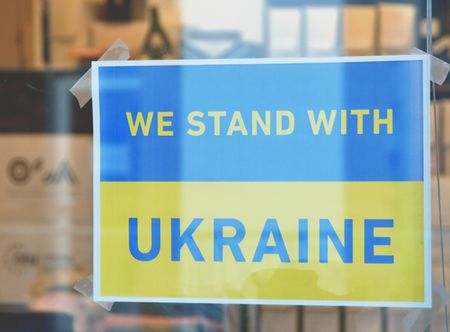The Vera and Donald Blinken Open Society Archives at Central European University welcomes the decision of the Prosecutor of the International Criminal Court (ICC) to open an investigation into the situation in Ukraine. As an archives committed to the promotion of human rights and social justice, we believe that military actions against civilian population, alleged war crimes, and crimes against humanity can and must be investigated as soon as possible. As stated by the Office of the Prosecutor of ICC, this work begins with the exploration of evidence.
Blinken OSA has long experience with archiving documentary traces of war crimes and human rights abuses from a not so recent, devastating war. Testimonies, forensic evidence, expert reports and photographs, ante-mortem and post-mortem databases, DNA and medical records, as well as maps and raw footage relating to the Srebrenica genocide in our holdings have been used in investigations and hearings before the International Criminal Tribunal for the former Yugoslavia in The Hague.
Initiatives such as the Bellingcat Investigation Team evaluating social and mass media content to track invading Russian military operations in civilian areas within Ukraine, accumulate records that can serve as court evidence, as laid down in the Berkeley Protocol on Digital Open Source Investigations. Beyond justice-making, these evidences of human rights abuses, if preserved, should act as guarantees of non-recurrence and become "documents of human pain," based on which victims, and society as a whole, can exercise their right to know the truth.
To give insight into the broader context of the current situation, Blinken OSA reorganized its Reading Corner in the Goldberger House, offering now unique documents and books from our archival and library holdings on the Cold War and recent history of Ukraine, human rights violations and international justice, and archival evidence.

